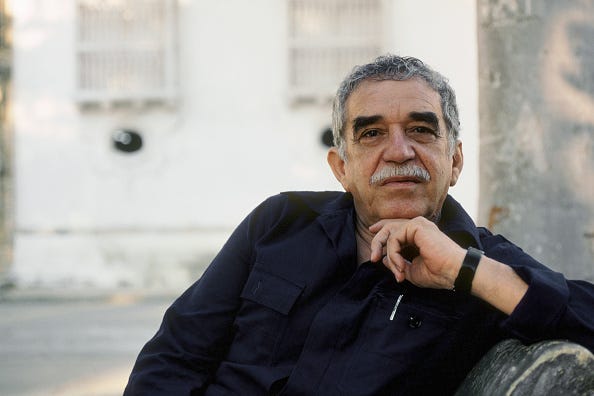|
 |
The Writer's Almanac from Wednesday, March 6, 2013
"Boy at the Window" by Richard Wilbur, from Collected Poems. © Harcourt, 2004.
ORIGINAL TEXT AND AUDIO - 2013
It's the birthday of the Nobel Prize-winning novelist who said, "I've always been convinced that my true profession is that of journalist." That's Gabriel García Márquez, born in Aracataca, Colombia, on this day in 1927. He's the author of one of the most important books in Latin American literature, One Hundred Years of Solitude (1967).
He worked for a newspaper in Bogotá for many years, writing at least three stories a week, as well as movie reviews and several editorial notes each week. Then, when everyone had gone home for the day, he would stay in the newsroom and write his fiction. He said, "I liked the noise of the Linotype machines, which sounded like rain. If they stopped, and I was left in silence, I wouldn't be able to work."
He learned to write short stories first from Kafka, and later from the American Lost Generation. He said that the first line of Kafka's Metamorphosis "almost knocked [him] off the bed," he was so surprised. In one interview, he quoted the first line ("As Gregor Samsa awoke that morning from uneasy dreams, he found himself transformed into a gigantic insect") and told the interviewer, "When I read the line, I thought to myself that I didn't know anyone was allowed to write things like that. If I had known, I would have started writing a long time ago. So I immediately started writing short stories."
It was from James Joyce and Virginia Woolf that he learned to write interior monologue, he said, and he prefers the way Woolf did it. And it was from William Faulkner, he said, that he learned to write about his childhood surroundings. Just after college, he went home to his early childhood village of Aracataca, a place he hadn't been since he was eight years old. It was the model for the fictional village Macondo in One Hundred Years of Solitude.
It was from his own grandmother that he learned the tone he used in One Hundred Years. His grandmother told stories, he said, "that sounded supernatural and fantastic, but she told them with complete naturalness ... what was most important was the expression she had on her face. He said, "I discovered that what I had to do was believe in them myself and write them with the same expression with which my grandmother told them: with a brick face." And he said, "When I finally discovered the tone I had to use, I sat down for eighteen months and worked every day."
He said: "Ultimately literature is nothing but carpentry. Both are very hard work. Writing something is almost as hard as making a table. With both you are working with reality, a material just as hard as wood. Both are full of tricks and techniques. Basically very little magic and a lot of hard work involved."
Be well, do good work, and keep in touch.®
If you are a paid subscriber to The Writer's Almanac with Garrison Keillor, thank you! Your financial support is used to maintain these newsletters, websites, and archive. If you’re not yet a paid subscriber and would like to become one, support can be made through our garrisonkeillor.com store, by check to Prairie Home Productions, P.O. Box 2090, Minneapolis, MN 55402, or by clicking the SUBSCRIBE button. This financial support is not tax deductible.


